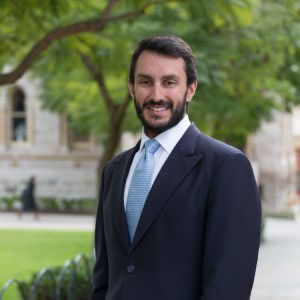Scientists help litigators master metadata evidence
With the mandatory metadata retention laws passed, courtrooms may soon be flooded with new data-based evidence that lawyers and judges must learn to process.

Maintaining a strong cross-disciplinary dialogue between forensic scientists and lawyers is essential to adapting to the change, according to David Caruso (pictured), a lecturer at Adelaide Law School.
To continue reading the rest of this article, please log in.
Create free account to get unlimited news articles and more!
“Metadata as a concept is something unfamiliar to lawyers,” Mr Caruso said.
“It is important for us to rely on our colleagues and our links with those who have a better awareness of what metadata entails, who are closer to that field, so we as the legal community can be cognisant and brought up to speed as soon as possible.”
Mr Caruso organised the International Conference on Evidence Law and Forensic Science, running in Adelaide this week.
The conference, which is being held outside China for the first time, will be attended by 300 delegates from 15 countries.
During a pre-conference workshop on 20 July delegates witnessed a mock trial, which demonstrated the examination and cross-examination of an expert witness using a metadata scenario.
The role-play showed a conflict of evidence between experts about the time that documents relevant to a particular legal dispute were created.
The purpose of this mock trial, as well as the series of discussions on metadata throughout the conference, is to help lawyers and scientists “understand each other’s language”, according to Mr Caruso.
“Lawyers need to understand precisely what metadata is and the sciences behind gathering and using that in courts,” he said.
The conference aims to expand lawyers’ knowledge of the strengths and limitations of traditional forms of evidence, such as fingerprint and handwriting analysis, but also less-familiar techniques such as metadata analysis and data recovery from the cloud.
“Law is increasingly relying on forensic science for proof,” Mr Caruso said.
“Forensic sciences … provide the brains, the analysis and the know-how for proving those matters that we depend on to come to a legal outcome. [Lawyers] need to understand how the science works.”
The conference, hosted by the University of Adelaide in partnership with the China University of Political Science and Law, will feature talks by the Chief Justice of Australia, Robert French; Chief Justice of South Australia, Chris Kourakis; and Chief Justice of Tanzania, Mohamed Othman.






